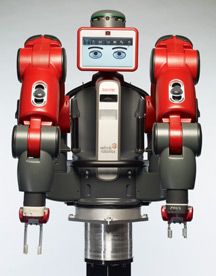There are two things I've found to be really difficult as a college student. The first thing is somehow staying motivated and energized in all of my classes, especially when things start getting crazy towards the middle and end of the semester. It seems like of all of my teachers get together and purposely have every test for each of my classes scheduled on the same day every semester. To help you understand what I mean, this meme should explain things:
The second thing I've found really difficult is somehow engaging the other students whenever giving a presentation. A lot of the other students probably have a thousand things on their minds too, so getting their attention isn't exactly easy. And right now, I'm running into that difficulty again. How do you make a topic like the economic and employment impact of information technology interesting? Well, I ran into this nugget of info about the jobs IT creates. It seems pretty relevant:
- In 2011, IT workers earned $78,584 a year, 74 percent more than the
average worker ($45,230).
The source of that info is an article called "Just the Facts: The Economic Benefits of Information and Communications Technology" by Robert D. Atkinson and Luke A. Stewart. It can be found here: http://www2.itif.org/2013-tech-economy-memo.pdf. It mentions some other interesting things too, and I'll get to a few of those soon.
So when I hear about the average worker in a field earning $78,584 a year, I start to think about what job I'm going to get after graduating. Then I think that I'll be making that kind of money in that job. Then I start to feel like this:
(source: bretcontreras.com)
Then I come back to reality and realize I'll probably feel like this after graduation:
So anyway, it's at least nice to know those jobs are available. That article I cited earlier mentions that there are quite a few of those jobs out there and they are still being created. Here are a couple of points it brings up:
- Between 2001 and 2011, over 565,000 IT-related jobs were created (in all industries) in the U.S., an increase of 22.2 percent. IT jobs grew more than 95 times faster than employment as a whole, which grew by only 0.2 percent.
- Increased investments in IT actually lead to more, not less, job creation. U.S. corporations that invested more in IT expanded their workforces by 14 percent between 2006 and 2010, while the average increase of Fortune 500 firms that invested less in IT increased employment just 6 percent.
Reading stuff like this makes me a bit more hopeful about whatever job or career I may find myself in after graduation. Even if I don't work directly in IT, it's good to see jobs are actually being created so I don't have to compete relentlessly for, what in all likelihood will be, an entry level position.
It's also nice to think that one day I'll be paid for doing work, as opposed to paying someone else to do work like I'm doing right now in college. Seriously, has anyone else thought about that before?








